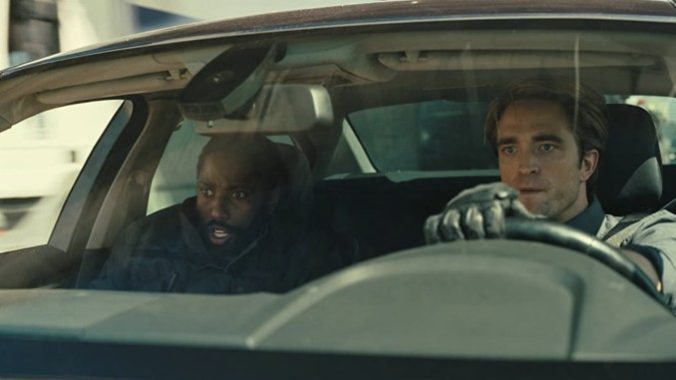Just Feel It: The Simple Vibe and Friendship at the Heart of Tenet

In retrospect, Tenet always seemed cursed to become the black sheep of Christopher Nolan’s filmography. In my mind, and likely in the minds of many others, it’s a film that will be forever associated with the confusion and uncertainty surrounding the start of the COVID-19 pandemic. Marketing for Tenet began in 2019, with Warner Brothers working to sell it as another formidable Nolan blockbuster that demanded theatrical attendance—the first teaser was initially only able to be seen theatrically, and the film’s prologue was played before IMAX screenings of Star Wars: The Rise of Skywalker. Like all Nolan features, there was a heavy push to see it in IMAX, as well as on 35mm or 70mm. It was made on Nolan’s largest budget for a non-franchise film to date.
Deadly viruses don’t much care about the movie business though and, like all other planned 2020 theatrical releases, Tenet was suddenly caught in a state of limbo similar to the one that the protagonists of Inception were trying to avoid. With an August release, Warner Bros. was afforded a little extra time to formulate a game plan, or to just try and wait the thing out. They ultimately settled on releasing the film in key markets internationally before slowly rolling it out in America, which was still in the midst of regularly-spiking rates of infection. Tenet became the first major studio tentpole to open following global lockdowns and was situated in the precarious position of being the hopeful prognosticator of a society ready to get back out to the movies. But its major domestic market was still unsure if it was a good call to spend two-and-a-half hours surrounded by germy people—or couldn’t go even if they wanted to.
Unsurprisingly, the film didn’t live up to typical financial expectations during its theatrical run as many people, myself included, opted to wait until a home viewing option became available. Given how intentionally Nolan crafts his films to be an immersive cinematic experience, the majority of viewers were not able to watch Tenet within the right frame of mind or context. True, a good movie should be good no matter where you watch it, but there’s no denying that a certain piece of the puzzle is missing when you have to watch a Nolan movie in your living room as your primary exposure to it. All of the film’s troubles were compounded by uncharacteristically mixed reviews, many of which knocked the film for its overcomplicated plot.
What all this adds up to is a movie that tends to get outshined by a filmography that includes huge pop culture staples and critical darlings like The Dark Knight, Inception, Interstellar and even the less-discussed Dunkirk. Tenet gets tossed to the side as a lesser work by a substantial filmmaking talent that kinda sorta came out in theaters, but for most people actually just came out on DVD or HBO Max; a film that didn’t quite connect, ready to be forgotten. That’s unfortunate, because Tenet is not only one of Nolan’s best films in a long career of cerebral, mind-bending films—it’s also secretly the simplest original concept he’s ever put to screen.
At first glance, Tenet seems directly indebted to the films of Nolan’s past. In fact, it could be most readily described as an amalgamation of the reverse-chronological narrative gimmick of Memento, the rigorous procedure and layered narrative scaffolding that comes with entering a subject’s dreams in Inception, and the heady concepts and time-travel found in Interstellar. A little more weird and convoluted than any of those, the narrative of Tenet is built around the concept of time inversion (markedly different from time travel, mind you). Through this inverted entropy, people and objects can move backward through time as other people move forward, and it can also be used to communicate with the future, which is how Kenneth Branagh’s character Andrei Sator is planning to enact a state of global nuclear fallout. John David Washington is The Protagonist (that is literally his only moniker, in a brazen feat of narrative literalism) who is recruited by the Tenet organization, that specializes in this secret world of time-altering espionage, which assigns him a handler/new best buddy Neil (Robert Pattinson), as the two travel through both directions in time to stop a threat from going to the past and altering the future.
-

-

-

-

-

-

-

-

-

-

-

-

-

-

-

-

-

-

-

-

-

-

-

-

-

-

-

-

-

-

-

-

-

-

-

-

-

-

-

-








































